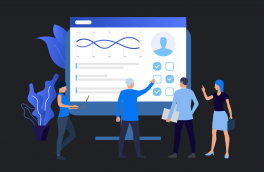Definition and Introduction of the Trend
Artificial Intelligence is an aspect of computer science that concentrates on the establishment of intelligent machines that react and operate like human beings (Bak-Maier, 2018). Some of the activities that such technologies can perform include speech recognition, planning, problem-solving, and learning. Research revolving around artificial intelligence is extremely specialized and technical. The primary problems associated with AI include programming computers to perform certain features such as reasoning, problem-solving, reasoning, perception, knowledge, and the capability to move and manipulate objects. Knowledge engineering forms an instrumental part of research involving artificial intelligence (Bak-Maier, 2018). Machines in most cases can react and act like human beings only when they possess enough knowledge and information associated with the world. Essentially, they must possess access to properties, objects, categories, and relations between all of them in order for AI to create knowledge and information engineering. As such, creating reasoning, common sense, and problem-solving ability is a tedious and challenging task.
Machine learning is also seen as an important part of Artificial intelligence. As such, engaging in learning without necessarily getting supervised needs a capacity to identify certain aspects in streams of inputs. On the other hand, learning with enough supervision and control revolves around numerical regressions and classifications (Bak-Maier, 2018). The perception of machines engages the capability to employ sensory inputs to deduce the different elements of the world whereas computer vision is the authority and capacity to analyze visual inputs with minimum challenges such as an object, facial and gesture recognition (Bak-Maier, 2018). Moreover, Robotics is also considered an important part of AI. Robots need intelligence to deal with tasks such as navigation and object manipulation along with other sub-challenges such as motion planning, localization, and mapping. There is no shortage of arguments regarding the implications of AI on tasks and job opportunities. However, some experts are of the ideology that jobs will be shredded but not eliminated (Bak-Maier, 2018). For this reason, instead of individuals worrying about the loss of jobs, organization managers should be focusing on assisting to reduce jobs where AI and machine learning are assigned boring jobs and tasks while human beings concentrate on higher-level tasks.
Machine learning is also seen as an important part of Artificial intelligence. As such, engaging in learning without necessarily getting supervised needs a capacity to identify certain aspects in streams of inputs. On the other hand, learning with enough supervision and control revolves around numerical regressions and classifications (Bak-Maier, 2018). The perception of machines engages the capability to employ sensory inputs to deduce the different elements of the world whereas computer vision is the authority and capacity to analyze visual inputs with minimum challenges such as an object, facial and gesture recognition (Bak-Maier, 2018). Moreover, Robotics is also considered an important part of AI. Robots need intelligence to deal with tasks such as navigation and object manipulation along with other sub-challenges such as motion planning, localization, and mapping. There is no shortage of arguments regarding the implications of AI on tasks and job opportunities. However, some experts are of the ideology that jobs will be shredded but not eliminated (Bak-Maier, 2018). For this reason, instead of individuals worrying about the loss of jobs, organization managers should be focusing on assisting to reduce jobs where AI and machine learning are assigned boring jobs and tasks while human beings concentrate on higher-level tasks.
Your Order
| Title | |
|---|---|
| Author | |
| Price | $ |
| Processing Fee | $ |
| Total | $ |
| Wallet Balance | $ |
|---|---|
Make an offer to buy the content
Important: Once the offer is accepted, the offer amount will be deducted from your Wallet.
Place the offer when you're ready to buy.
Offer Price (USD):
Hire
Please refresh the page to reconnect chat
Chat is not enabled
Block
No member of this chat will be able to send any message in it
Exit Chat Permanently
Title of the project
account.txt
close
335kb
Chat
remove
notifications
| Total |
|---|
| Current Wallet Balance | |
|---|---|
| New Wallet Balance |









Comments